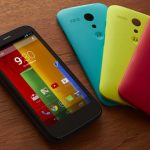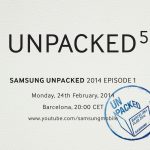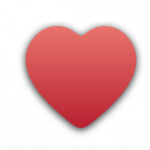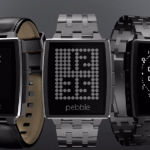Microsoft wants your friends, family to embrace Windows 8.1 and finally ditch XP

Being the go-to tech support guy for my family and some friends usually means I am asked to do a clean install of the operating system and software on their PCs. It does not happen often, but when it does I make sure they are on the latest available versions. This is because there is a lesser chance of malware infections, and developers ensure updates for many years to come. (That being said, I have yet to subject them to Windows 8.x, but that day may come as well.)
Microsoft knows it has many customers who also provide tech support for friends and family, so the software giant is now urging them to move everyone they know away from Windows XP, as support for the old operating system is soon to end, by upgrading to Windows 8.1. In part, this is a sound piece of advice as there are still too many Windows XP users out there who may have to face massive problems due to the lack of software updates. (If my experience is of any indication, those who provide tech support may face massive headaches when attempting to fix those problems, but that is another story).
Newegg launches Premier subscription, available for $49.99 per year

In tech, subscriptions are all the rage today. This business practice allows companies to have a steadier flow of revenue, as opposed to the traditional (in this field, anyway) one-time payment model. At the same time, consumers can pay less at once in exchange for upscale services and products. Just take a look at Microsoft Office 365. It costs $99.99 per year for a suite that consumers would have to pay at least twice as much to buy outright (not to mention that the former can be installed on four more devices, and it offers exceedingly more features).
US retailer Newegg has decided that it too wants a piece of the subscription revenue pie, as it just launched Premier. The $49.99 per year service is similar to Amazon Prime, albeit cheaper compared to the $79 charged by its rival. It is also currently in beta, most likely for Newegg to gauge customer feedback and adoption before labeling it as ready for prime time (or, maybe, pulling the plug).
Verizon Motorola Moto G gets Android 4.4 KitKat

The Motorola Moto G is one of the most interesting smartphones launched in 2013. It comes with a powerful processor, large screen and, most importantly, a very attractive price. The base 8 GB model costs a mere $179 off-contract, while the 16 GB version can be had for $20 more. Users also get 50 GB of free Google Drive storage for two years.
But, there is another reason why the Moto G is interesting -- KitKat. Motorola has promised to update its entry-level smartphone to the latest version of Android, quickly rolling it out for the international version. Now, those who have the Verizon model can also experience what KitKat has to offer.
Jelly Bean surpasses 60 percent Android distribution

It is that time of the month again when we take a look at the latest Android distribution data. Google has released a new chart, based on the number of devices accessing the Play store in the seven days ending February 4, placing Jelly Bean as the most popular sweet with over 60 percent share in the green droid realm.
In early-February, the most popular Jelly Bean iteration is once again Android 4.1, thanks to a strong 35.5 percent distribution. It is also the most popular version of the mobile operating system, a title that it's relished since July 2013 when it finally topped the outdated Gingerbread. In the Jelly Bean branch, Android 4.1 is followed, in this order, by Android 4.2 and Android 4.3, with 16.3 percent and 8.9 percent distribution, respectively.
Bill Gates steps down as Microsoft chairman

Microsoft has put an end to all the speculation surrounding Steve Ballmer's replacement, as the software giant today named Satya Nadella as its new CEO. The company's new leader will take the role "effective immediately". Also, starting today, Microsoft founder Bill Gates will no longer act as chairman of the board.
Gates is not stepping down from Microsoft entirely, as he will continue being on the board in a new role, as Founder and Technology Advisor. The man will also "devote more time to the company, supporting Nadella in shaping technology and product direction", says Microsoft. Gates will also continue his philanthropic endeavors, for which he has been best known since stepping down as the software giant's CEO in 2008.
Microsoft continues to downplay Chromebooks in new Windows 8.1 ad

It is no secret that Microsoft is feeling threatened by Chromebooks and Chrome OS. A series of controversial ads which disparage the pair has already proved that. But when will the software giant stop playing the same old broken record that implies only Windows PCs are good enough to get real work done and Chromebooks are not?
Microsoft downplays Chromebooks due to their alleged inability to get "much done" without an Internet connection and without access to its own Office suite. This is the theme that Microsoft has used (and repeatedly abused before) to pitch Windows 8.1 in a new video advert. Seriously? How can a company that prides itself for its cloud services use those two arguments in 2014? Is that not the definition of hypocrisy?
What a shocker! Samsung to unveil 'The Next Big Thing' at Unpacked Episode 1

Samsung has announced that its first Unpacked event of the year will be held on February 24, in Barcelona, which coincides with the MWC 2014 opening day. The South Korean maker has also hinted at a possible unveiling of "The Next Big Thing". You did not see this one coming, did you?
Samsung has previously used the term The Next Big Thing prior to taking the wraps off new versions of its popular high-end smartphones, like the Galaxy S4 and Galaxy Note 3, and the Galaxy Gear smartwatch, all of which were also announced at the Unpacked events it held last year.
5 things Windows Phone 8.1 needs to succeed

Even though more than one year has passed since Windows Phone 8 arrived, Microsoft has yet to officially take the wraps off the upcoming new version of its tiled smartphone operating system. This long release cycle is uncommon in this business, as more popular competitors boast two major iterations launched in the course of a year. Windows Phone 8.1 has a lot of catching up to do, giving us plenty of leeway to compile and compare our own wish lists before the grand unveiling.
The foundation that Windows Phone 8 has laid out for its successor, starting with the original release that was subsequently improved by three minor updates, is solid enough for Microsoft to build upon and launch something mind-blowing (whenever that happens). Nothing else will cut it, as the platform needs a big boost to overcome the paltry 3.6 percent market share from last year. And, it is about time Windows Phone gets a solid head start on the competition, that has created an unshakable duopoly in the market, responsible for 94.4 percent of smartphone shipments in 2013. What Microsoft decides to bake in Windows Phone 8.1 can make or break the operating system's chances of ever becoming that respected third player, that is taken seriously due to its traits not its incidental place on the podium.
Should Google stop launching Nexus devices?

Nexus smartphones and tablets have developed a cult following among enthusiasts mainly due to Google's ability to deliver updates to the latest versions of Android in a timely manner. The software also has little to no customizations over the code that is available in AOSP, unlike that of many devices that have been offered throughout the years by Android vendors, such as HTC and Samsung. Android enthusiasts often refer to Google's distributions as "pure Android", even though that is no longer the case exactly with the new Nexus 5, that has introduced a launcher not officially found on any of its siblings (or available in AOSP for that matter).
Nexus devices were also supposed to usher Android vendors into releasing smartphones and tablets that adhere to the design guidelines established by Google. This is one area where the search giant's brand has failed to become a trendsetter, as the likes of HTC, LG and Samsung continue to apply their own vision on how their Android handsets should look at the software and hardware levels. Remember how physical buttons were supposed to go away from the front of Android devices? Well, they are still alive and kicking even in 2014 and even on tablets (even though there were clear signs pointing to slates only adopting on-screen keys). It could, therefore, be argued that the Nexus ethos has already ran its course and it is time for Google to move on. So should Google move on?
Switching from a Windows 8.1 PC to Mac -- a painful yet worthwhile transition

Due to my geeky nature I am prone to making rash decisions. If something interesting grabs my attention chances are I will want to try it out right away, without giving too much thought to the possible implications as curiosity gets the best of me. More often than not (luckily), I enjoy the experience from the get-go and end up accepting the new, but this has not been the case with my switch from Windows 8.1 to Mac. Things just did not make sense to me right from the start, it did not feel natural and it did not just work. I have since wanted to go back more times than I can remember.
Years and years of muscle memory and computing habits, that I developed whilst using Windows, went down the drain as I started my Mac experiment (a costly one at that). Bye, bye! The software that I needed or wanted to use was simply not there, or working as I would have liked it to, on OS X. I definitely did not enjoy this part, nor the one where I had to find good alternatives to my favorite programs, learn how to do basic things again, and adapt to what was basically a quirky new platform for me. I am not a masochist, I enjoy trying out new things, but even I had to admit that I was in over my head.
Jobs site offers Internet Explorer 7 users new computers with 'a modern browser' for free

When a site decides it will no longer support outdated versions of a certain browser, usually an announcement of some sort follows, explaining that affected users should upgrade to a newer iteration, or switch to an alternative offering, in order to avoid a subpar experience. For the most part, the targets are Internet Explorer 7 and its predecessor, both of which belong to the annals of browsers, even in Microsoft's opinion.
But, NursingJobs.us has decided to take a different route. In a blog post titled "IE7 users, we need to talk...", the jobs site has announced that it has stopped supporting the said browser version (that is now more than seven years old), but in order to keep affected users happy it will give them "a new computer with a modern browser" for free.
Windows Phone still plays in the little league, fails to reach 4 percent market share

Bad news for Microsoft today, as a new report that was just released by research firm Strategy Analytics places its smartphone operating system, Windows Phone, at less than 4 percent market share in 2013. It may be in an honorable third place, but, by contrast, Apple's iOS, which ranks second, had a market share of 15.5 percent in the same period, while Android, the most popular of the bunch, dominated the landscape from afar with 78.9 percent market share in the past year.
In 2013, shipments of smartphones running Windows Phone reached just 35.7 million units, leading to a low market share of 3.6 percent. Overall, a previous Strategy Analytics report released earlier this week places smartphone shipments in 2013 close to one billion units (990 million, to be exact). The tiled mobile OS grew in both shipments and market share compared to 2012, from 18.8 million and 2.7 percent, respectively, but has yet to reach a threatening position to its more popular rivals, even for iOS which has been losing market share in major markets across the globe.
BlackBerry to soon offer BBM on Android 2.3 Gingerbread smartphones

Even though Gingerbread's days of glory have long passed, the three-year old distribution is still running on more than 20 percent of all Android devices accessing Google Play. Those are smartphones actively used by people across the globe, which will not receive an upgrade to a newer version of the mobile operating system.
This presents a problem for BlackBerry. The Canadian maker wants to increase the user base of its BBM service, but the app available on Google Play is only compatible with smartphones that are running Android 4.0 Ice Cream Sandwich and newer. BBM for Android does not even work on tablets, unlike its iOS counterpart. Luckily for those stuck on Gingerbread that is shortly set to change.
Pebble Steel smartwatch now available

The Pebble Steel was introduced earlier this month at CES 2014 as a classier alternative to the original, plastic-made Pebble. With its steel shell, it is meant to appeal to people who want to wear a smartwatch as a daily driver, but with the sort of looks that would be suited for social events or boardroom meetings. The Pebble Steel is (also) for watch lovers who would not ever be caught with anything made of plastic on their wrist.
After making the pre-ordering rounds, the Pebble Steel is now officially available to purchase. It costs $249, which is $99 more than you would pay for the older model (the latter still goes for $150). Let us take a look at what you get for the money.
BlackBerry 10.2.1 update rolling out now

BlackBerry's new smartphone lineup may not be as popular as the Canadian maker would have wanted it to be, with sales of the latest models unable to top those of legacy devices. Despite the poor performance, BlackBerry is not giving up (not yet anyway) as it is frequently launching updates for the BB 10 operating system, with a new version announced today.
BlackBerry 10 OS version 10.2.1 starts to roll out across the globe, with users from US, Europe, Canada, the Middle East, Africa, the Asia Pacific region and Latin America set to receive the latest update, starting today, on their devices. There is no word on which BlackBerry 10 OS smartphone will get the new software version first, nor whether the first stage includes mobile operator-branded models. Now let us take a look at the (major) changes.
Mihăiță's Bio
Mihăiță Bamburic is the resident staff writer, reporting technology news from Europe. He focuses on mobile computing, covering the latest smartphones, tablets, laptops and apps. He also frequently writes editorials, analyzing companies and products that have a deep impact on consumer-facing technology.
Ethics Statement© 1998-2025 BetaNews, Inc. All Rights Reserved. Privacy Policy - Cookie Policy.
